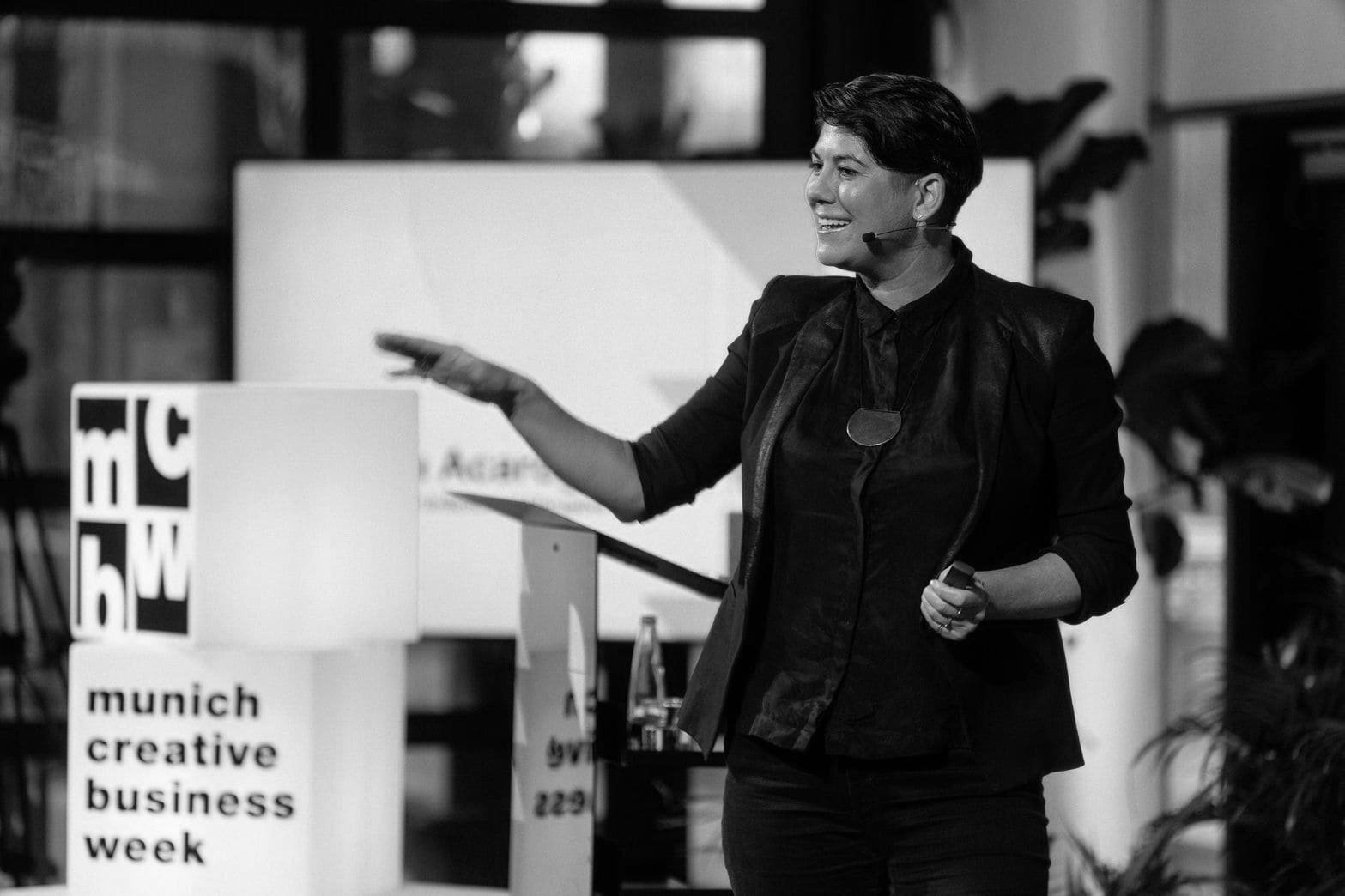Women Driving Change: Sustainability, Design & Innovation
Since I was a teenager, I’ve been passionate about empowerment—helping people and the planet. Growing up, I admired women who, through simple yet powerful connections, created change. Reflecting on my ambitious goals, I look to many inspiring women from different fields who have led the way in sustainability, health, and design. In celebration of International Women’s Day, here’s a look at some remarkable women making an impact.
Sandra Capponi – Ethical Consumerism & Sustainability
Co-founder of Good On You, Sandra Capponi has transformed the way consumers shop by making ethical fashion more accessible. The app provides transparency on fashion brands’ environmental and ethical impact, helping people make informed, sustainable choices. As someone who frequently uses Good On You, I’ve seen firsthand how her work empowers conscious consumerism.
Sandra Capponi | LinkedIn | Good On You - Sustainable Fashion and Beauty Brand Ratings
Zubaida Bai – Health & Economic Empowerment
As the President and CEO of Grameen Foundation, Zubaida Bai is improving the health and financial independence of women worldwide. She founded Ayzh, a social enterprise providing maternal healthcare solutions, and continues to drive change in women’s health and economic mobility.
Zubaida Bai | LinkedIn | GrameenFoundation
Tina Roth Eisenberg – Creative Community Building
Tina Roth Eisenberg founded CreativeMornings, a global movement connecting creatives through free monthly events. As someone who has engaged in this community, I’m continually inspired by its reach and the opportunities it provides for creative growth and collaboration.
Tina Roth Eisenberg | LinkedIn | CreativeMornings
Robin Wilson – Clean & Sustainable Living
Robin Wilson, an author of “Clean Design: Wellness for your Lifestyle” and entrepreneur, is a champion for clean and sustainable home design. She’s an advocate for non-toxic living, showing that sustainability can extend beyond personal choices into the very spaces we inhabit.
Robin Wilson | LinkedIn | Clean Design Home
Lauren Singer – Zero-Waste Lifestyle Advocacy
The founder of Trash for Toss and now the managing partner at Overview, Lauren Singer has been a major influence in the zero-waste movement. Her journey towards a waste-free lifestyle inspired me to reduce my own footprint and think critically about consumption habits.
Sian Conway-Wood – Behavioural Science in Sustainability
A leader in sustainable branding, Sian Conway-Wood uses behavioural science to bring sustainable products to mainstream markets. As the author of “Buy Better”, she provides practical insights into ethical consumption and marketing.
Sian Conway-Wood | LinkedIn | Buy Better, Consume Less
Ayana Elizabeth Johnson – Ocean Conservation & Policy
As a marine biologist and policy expert, Ayana Elizabeth Johnson is fighting for ocean conservation and climate solutions. Her work, including co-founding Urban Ocean Lab, highlights the critical link between sustainability and policy-making.
Ayana Elizabeth Johnson | LinkedIn | Urban Ocean Lab
Debbie Millman – Storytelling & Design Education
A legendary figure in branding and design, Debbie Millman is the host of Design Matters, one of the first and most influential design podcasts. Her insights have played a crucial role in my learning journey, offering deep perspectives on design’s role in storytelling and identity.
Ella Mills – Healthy & Sustainable Food Movement
Founder of Deliciously Ella, Ella Mills has revolutionised plant-based eating, making healthy and sustainable food more accessible. Her journey, which also shaped my relationship with food, shows how branding and storytelling can inspire positive lifestyle shifts.
Deliciously Ella (@deliciouslyella) | Deliciously Ella
Cheryl Heller, PhD – Design for Social Innovation
As a pioneering force in design education, Cheryl Heller has worked extensively in social innovation. Her work bridges design and societal impact, helping businesses and individuals use design as a tool for change.
Leyla Acaroglu – Circular Economy & Systemic Change
TED Speaker and sustainability provocateur Leyla Acaroglu is reshaping how we approach design, consumption, and waste. As the founder of multiple initiatives like Disrupt Design and UnSchool, she challenges outdated systems and educates on circular economy solutions.
How Brands Can Cultivate Positive Change
So, what can brands learn from these incredible women? Here are three key takeaways:
Align with Purpose: A strong brand isn’t just about products—it’s about values. Communicate your mission to build an authentic connection with your audience.
Leverage Storytelling: People connect with stories. Whether through personal narratives or brand history, compelling storytelling makes an impact.
Emphasise Transparency: Today’s consumers value honesty. Ethical branding isn’t just a marketing tactic—it’s a long-term strategy for trust and loyalty.
These women prove that branding and design can be powerful tools for positive change. Whether in sustainability, health, or ethical business, they have reshaped industries by staying true to their purpose and using branding as a vehicle for impact. As we celebrate International Women’s Day, let’s take inspiration from these female leaders and continue pushing for a greater world, because we only have one.
References
Brennan, L., & Brady, E. (2018). Nonprofit brand management: Mission-driven marketing in an era of accountability. Routledge.
Hethorn, J., & Ulasewicz, C. (2015). Sustainable fashion: What's next? A conversation about issues, practices and possibilities. Bloomsbury Publishing.
Kotler, P., & Sarkar, C. (2021). Brand activism: From purpose to action. Idea Bite Press.
Markard, J., Raven, R., & Truffer, B. (2012). Sustainability transitions: An emerging field of research and its prospects. Research Policy, 41(6), 955-967. https://doi.org/10.1016/j.respol.2012.02.013
White, K., Habib, R., & Hardisty, D. J. (2019). How to SHIFT consumer behaviours to be more sustainable: A literature review and guiding framework. Journal of Marketing, 83(3), 22-49. https://doi.org/10.1177/0022242919825649




